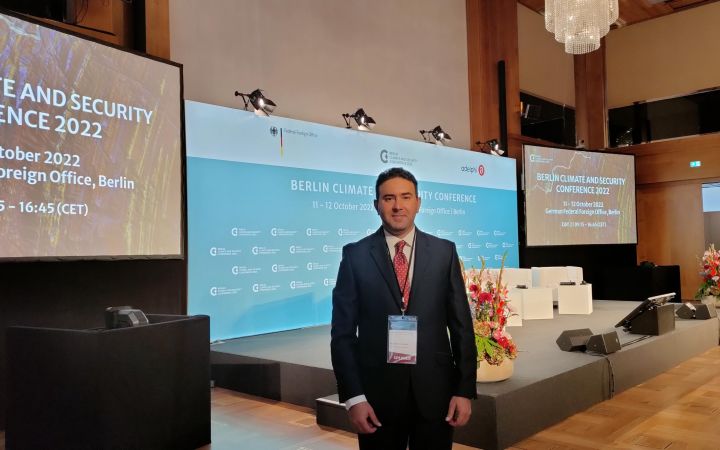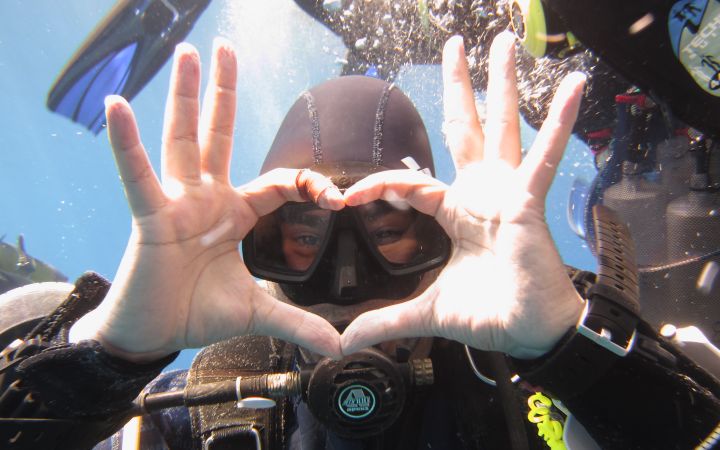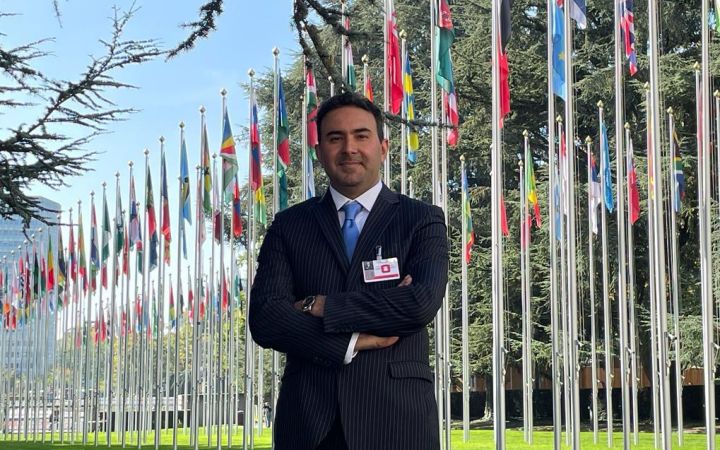- Water scarcity related to climate change is hitting Iraq’s agriculture sector hard.
- Dr Sameh W. Al-Muqdadi is a leading expert in water resources management and a resource person for UNITAR’s Great Ideas Space entrepreneurship training programmes.
- Sameh joined COP27. He sees entrepreneurship’s potential to bridge the gap between global goals and local action.
December 2022, Hiroshima, Japan – Climate vulnerability and food insecurity threaten the already conflict-torn areas in the Middle East and North Africa. In Iraq, infrequent rainfall and rising temperatures in recent years have especially worsened water scarcity. With more than 80 per cent of the country’s water resources being used for agriculture, water scarcity has devastating consequences on the sector that employs 30 per cent of the Iraqi population.
People are increasingly driven to migrate from rural areas to the main cities in search of work – but the urban infrastructure cannot accommodate such an influx. A significant part of the population is left unemployed, while food insecurity rises and the country’s economic development stagnates.
An expert in water resources management
Dr Sameh W. Al-Muqdadi, a German Iraqi leading expert in water resources management, is helping more Iraqis to implement safer environmental practices, especially to preserve water. Seeing how governance and politics affect water resources and the role natural resources play in conflict as well as in peacebuilding, Sameh seeks to build fellow Iraqis’ capacity to advance environmental protection, water resource management and climate-change action.
For his experience on the ground and academic expertise, Sameh was chosen to give inputs to the Global Workshop on Water, Agriculture and Climate Change. Sameh joined more than 200 experts to discuss climate change and security in the lead-up to the 27th Conference of the Parties to the United Nations Framework Convention on Climate Change (COP27) in Egypt in November 2022. The key messages from the workshop serve as part of the discussion material at COP27 side events.
Connecting global COP27 to local solutions: The role of entrepreneurs
Reflecting on the COP27 outcomes, Sameh points out the gap between the global vision and local implementation.
“People working on the ground believe their needs are different from what has been portrayed on the global level. There is the need to hear more from local people to provide them with customized solutions to fit their needs.”
Startups and entrepreneurs have the potential to fill that gap, Sameh believes. They are well-placed to find local solutions for sustainable development because they tend to be close to the people on the ground and can understand local needs. Such solutions could include, for example, smart irrigation systems and smart farming and water-harvesting systems, which can mitigate the effects of drought.
To Sameh, implementing the outcomes of COP27 means empowering green businesses. That includes creating an environment that builds startups’ capacities and helps entrepreneurs access financial resources.
UNITAR: Empowering local entrepreneurs
Since 2021, Sameh has been a lecturer and mentor for the UNITAR Great Ideas Space programmes. In the latest round of Entrepreneurship for Public Health and COVID-19 Recovery in Egypt, Iraq, and Lebanon, he notes that young entrepreneurs are eager to learn and apply new knowledge and insights to scale up their businesses.
“Empowering local entrepreneurs is fundamental to maintaining the economy of Iraq. The UNITAR programme is a good springboard for more advanced projects in the future.”
With the motto “Think big and dream big,” Sameh wants to continue empowering people to join the conversation on climate change and sustainable uses of natural resources.
About UNITAR
The United Nations Institute for Training and Research (UNITAR) is a dedicated training arm of the United Nations. In 2021, UNITAR trained 370,139 learners around the world to support their actions for a better future. In addition to our headquarters in Geneva, we have offices in Hiroshima, New York, Bonn and various networks around the world.
One of the eight divisions of UNITAR, the Division for Prosperity, based in the Hiroshima Office and Geneva Headquarters, seeks to shape an inclusive, sustainable and prosperous world. World-class learning and knowledge-sharing services on entrepreneurship, leadership, finance and trade, digital technologies, and nuclear disarmament and non-proliferation are offered. We empower individuals from developing countries – especially women and young people – to address inequalities. Our alumni are making a difference in least-developed countries, countries emerging from conflict, and small-island developing states.




